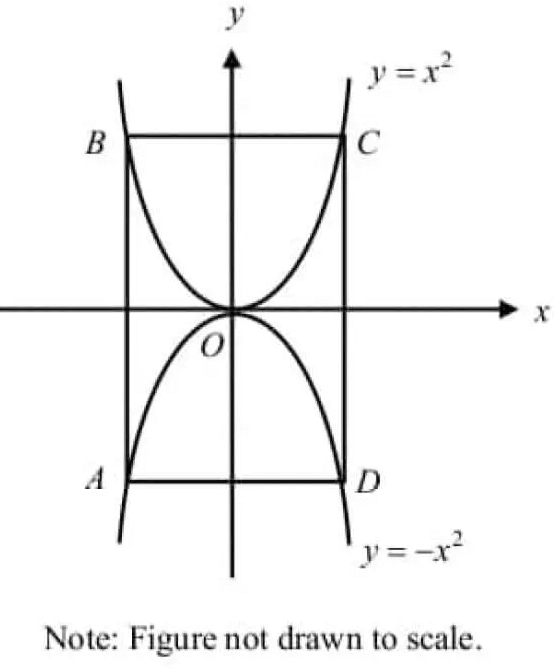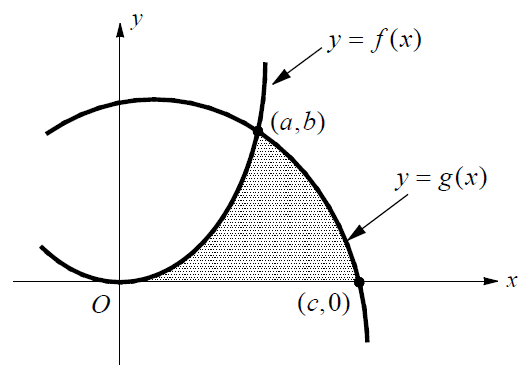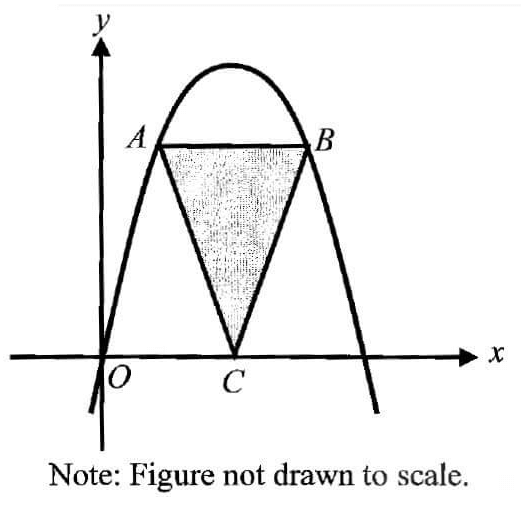FIND THE MAXIMUM AND MINIMUM VALUES OF THE FUNCTION EXAMPLES
The value of the function at a maximum point is called the maximum value of the function and the value of the function at a minimum point is called the minimum value of the function.
- Differentiate the given function.
- let f'(x) = 0 and find critical numbers
- Then find the second derivative f''(x).
- Apply those critical numbers in the second derivative.
- The function f (x) is maximum when f''(x) < 0
- The function f (x) is minimum when f''(x) > 0
- To find the maximum and minimum value we need to apply those x values in the given function.
Question 1 :
Find the maximum and minimum value of the function
2x3 - 15x2 + 36x + 18
Solution :
Let y = f(x) = 2x3 - 15x2 + 36x + 18
f'(x) = 2(3x2) - 15 (2x) + 36 (1) + 0
f'(x) = 6x² - 30x + 36
f'(x) = 0
6x² - 30x + 36 = 0
÷ by 6 => x² - 5 x + 6 = 0
|
x - 2 = 0 x = 2 |
x - 3 = 0 x = 3 |
f'(x) = 6x² - 30x + 36
f''(x) = 6(2x) - 30 (1) + 0
f''(x) = 12 x - 30
Put x = 2
f''(2) = 12(2) - 30
= 24 - 30
f''(2) = -6 < 0 Maximum
To find the maximum value let us apply x = 2 in the given function.
f(2) = 2 (2)³ - 15 (2)² + 36 (2) + 18
= 2(8) - 15(4) + 72 + 18
= 16 - 60 + 72 + 18
= 106 - 60
f(2) = 46
Put x = 3
f''(3) = 12(3) - 30
= 36 - 30
f''(3) = 6 > 0 Minimum
To find the minimum value let us apply x = 3 in the given function.
f (3) = 2 (3)³ - 15 (3)² + 36 (3) + 18
= 2(27) - 15(9) + 108 + 18
= 54 - 135 + 108 + 18
= 180 - 135
= 45
Therefore the maximum value is 46 and minimum value is 45.
Question 2 :
Find the maximum and minimum value of the function x3 - 6 x2 + 9 x + 1.
Solution :
Let y = f (x) = x3 - 6 x2 + 9 x + 1
f'(x) = 3x² - 6 (2x) + 9 (1) + 0
f'(x) = 3x² - 12x + 9
f'(x) = 0
3x² - 12x + 9 = 0
÷ by 3 => x² - 4 x + 3 = 0
|
x - 1 = 0 x = 1 |
x - 3 = 0 x = 3 |
f'(x) = 3x² - 12x + 9
f''(x) = 3 (2 x) - 12 (1) + 0
f''(x) = 6 x - 12
Put x = 1
f''(1) = 6(1) - 12
= 6 - 12
f''(1) = -6 < 0 Maximum
To find the maximum value let us apply x = 1 in the original function
f (x) = x³ - 6 x² + 9 x + 1
f (1) = (1)³ - 6 (1)² + 9 (1) + 1
= 1 - 6(1) + 9 + 1
= 1 - 6 + 10
= 11 - 6
= 5
Put x = 3
f''(3) = 6(3) - 12
= 18 - 12
f '' (3) = 6 > 0 Minimum
To find the minimum value let us apply x = 3 in the original function
f(x) = x3 - 6x2 + 9x + 1
f (3) = 33 - 6 (3)2 + 9 (3) + 1
= 27 - 6(9) + 27 + 1
= 54 + 1 - 54
= 1
Therefore the maximum value is 5 and minimum value is 1.
Kindly mail your feedback to v4formath@gmail.com
We always appreciate your feedback.
©All rights reserved. onlinemath4all.com
Recent Articles
-
Digital SAT Math Problems and Solutions (Part - 157)
May 05, 25 10:57 AM
Digital SAT Math Problems and Solutions (Part - 157) -
AP Calculus AB Problems with Solutions (Part - 21)
May 04, 25 11:49 PM
AP Calculus AB Problems with Solutions (Part - 21) -
Digital SAT Math Problems and Solutions (Part - 156)
May 04, 25 12:59 AM
Digital SAT Math Problems and Solutions (Part - 156)


